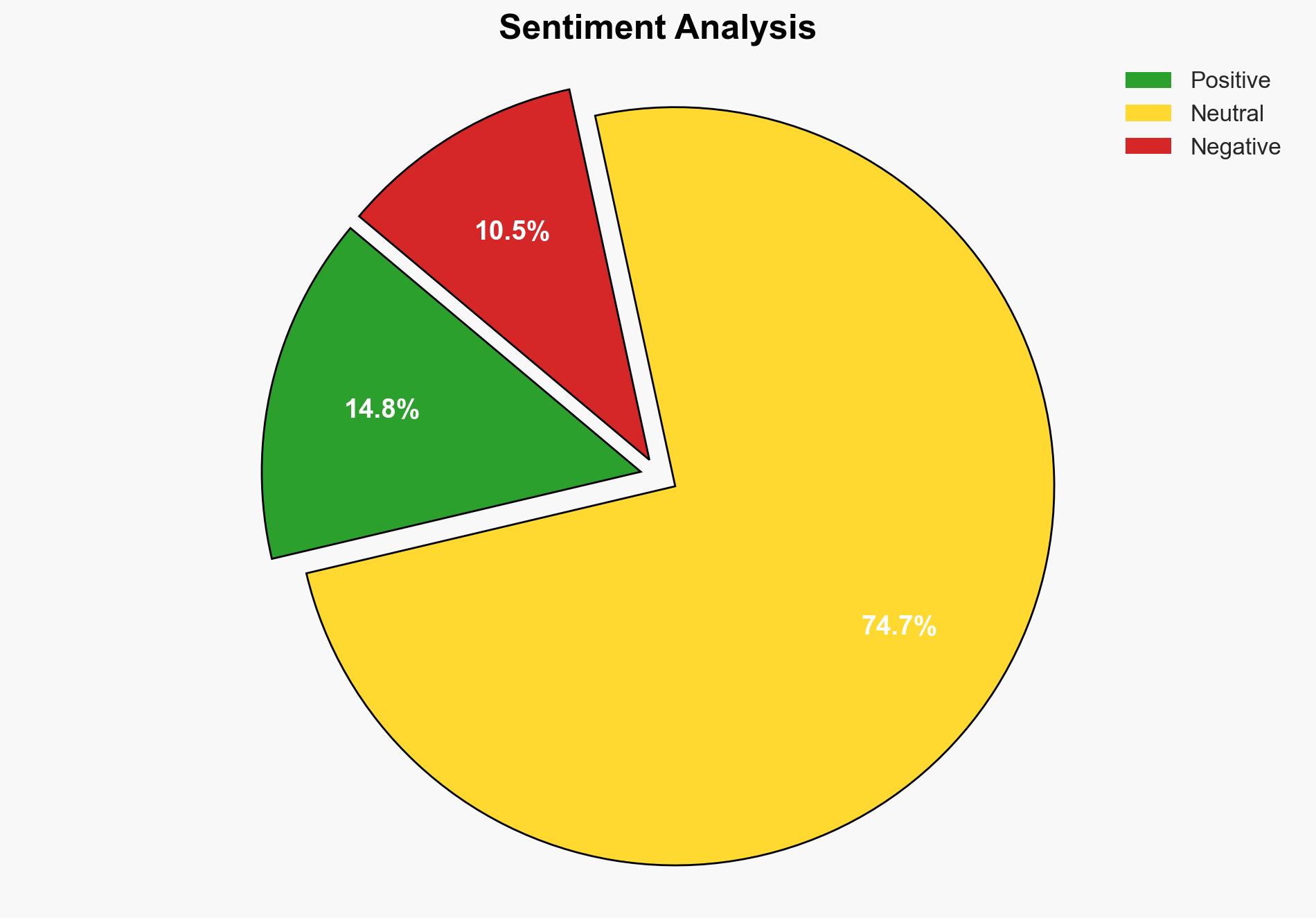Israel stops aid delivery to Gaza until Hamas accepts US ceasefire extension – NPR
Published on: 2025-03-03
Intelligence Report: Israel stops aid delivery to Gaza until Hamas accepts US ceasefire extension – NPR
1. BLUF (Bottom Line Up Front)
Israel has halted aid deliveries to Gaza, contingent upon Hamas accepting a US-proposed ceasefire extension. This development arises from ongoing tensions and disagreements over the terms of the ceasefire, with Israel seeking the release of hostages and Hamas rejecting the new plan. The situation poses significant humanitarian and geopolitical challenges, requiring immediate attention from international stakeholders.
2. Detailed Analysis
The following structured analytic techniques have been applied for this analysis:
SWOT Analysis
Strengths: Israel’s strategic leverage in negotiations; international support for ceasefire extensions.
Weaknesses: Humanitarian impact of aid blockade; potential for increased regional instability.
Opportunities: Potential for diplomatic intervention to mediate a resolution; engagement of international bodies to enforce humanitarian laws.
Threats: Escalation of conflict; further deterioration of humanitarian conditions in Gaza.
Cross-Impact Matrix
The blockade’s impact on Gaza could exacerbate tensions in neighboring regions, potentially influencing political dynamics in the Middle East. The involvement of international actors, such as the US, may alter regional alliances and affect ongoing peace processes.
Scenario Generation
Best-case scenario: Hamas agrees to the ceasefire extension, leading to a gradual de-escalation and resumption of aid deliveries.
Worst-case scenario: Breakdown of negotiations results in renewed hostilities, exacerbating humanitarian crises.
Most likely scenario: Prolonged stalemate with intermittent negotiations, maintaining a fragile ceasefire.
3. Implications and Strategic Risks
The blockade poses significant risks to regional stability, with potential spillover effects on neighboring countries. The humanitarian crisis in Gaza could lead to increased international pressure on Israel and Hamas, potentially straining diplomatic relations. Economic interests, particularly in the energy and trade sectors, may be adversely affected by prolonged instability.
4. Recommendations and Outlook
Recommendations:
- Encourage diplomatic engagement by international mediators to facilitate dialogue between Israel and Hamas.
- Advocate for humanitarian corridors to ensure the delivery of essential supplies to Gaza.
- Support initiatives for long-term peacebuilding and conflict resolution in the region.
Outlook:
The situation remains fluid, with potential for both escalation and resolution. Continuous monitoring and proactive engagement by international stakeholders are essential to mitigate risks and foster stability. The outlook will depend on the willingness of both parties to compromise and the effectiveness of diplomatic interventions.
5. Key Individuals and Entities
The report mentions significant individuals and organizations, including Leila Fadel, Michel Martin, Kat Lonsdorf, Steve Witkoff, and Benjamin Netanyahu. These individuals are central to the ongoing developments and negotiations.





